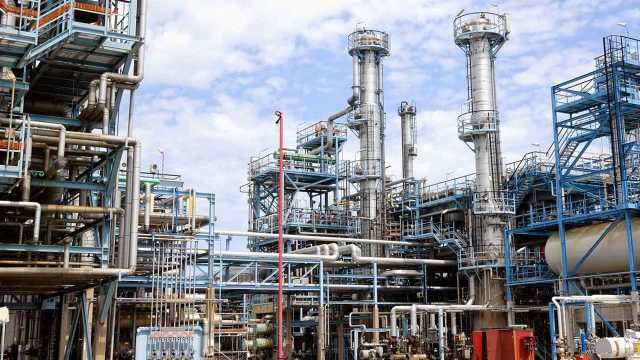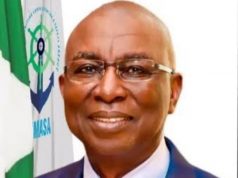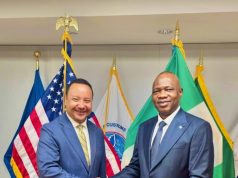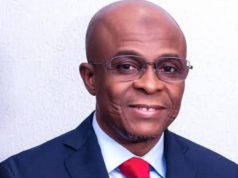… all geopolitical zones of Nigeria; in fact all the states is singularly blessed with solid minerals; and in commercial quantity too
Prior to the ‘oil boom’ (in the 1970s), agriculture and mineral exploration were the main stays of Nigeria’s economy. Solid minerals, especially coal, tin, columbite, lead and zinc were exported in large quantities; and formed a major source of revenue and employment generation, contributing hugely to the Gross Domestic Product (GDP) between 1965 and 1975. However, the solid mineral sector has stagnated for a long time and presently contributes less than a per cent to the country’s GDP. It is only mined secondarily by artisans who probably find themselves around these deposits. People are selling gold daily in Nigeria, but we don’t have a record of what is being sold, and these are the kind of issues that we think we need a proper framework to begin to address.” A sector as big as solid minerals can never develop by artisans.
All the geopolitical zones of Nigeria; in fact all the states is singularly blessed with solid minerals; and in commercial quantity too. Anambra has iron ore and limestone in abundance. Bayelsa has gypsum and limestone. Akwa Ibom has limestone and clay. Imo has lead/zinc and salt. Bauchi has gold and columbite. Gombe has gemstone and gypsum. Katsina has kaolin, marble and salt. Zamfara, Kebbi, Niger and Osun are very rich in gold. Ebonyi, Plateau and Nasarawa are blessed with tin and tantalum. The bitumen in Ondo state is of the highest quality anywhere in the world. Lagos has bitumen, clay and glass-sand to mention but a few.
In a bit to analyze and quantify quantity and cost, Professor Olugbenga Akindeji Okunlola, a prominent geologist said that the gold deposit in Osun state alone is worth about $5 billion as of 2017. “That is about N1.5 trillion. If it is mined and Osun takes 13% derivation, that is some N200 billion revenue over the lifespan of gold mining. In contrast, for the whole of 2016, Osun state collected N62 billion as federation allocation and internally generated N8.88 billion. If Ajaokuta steel in Kogi state can come on stream full blast, the potential income for Nigeria is in billions of dollars. And, of course, Kogi will take 13% of that. Enugu’s iron ore deposits are worth billions as well” he noted 
It is worthy of note that from the solid minerals we have in Nigeria, we can create value chains spewing out billions and billions of dollars every year. Millions will be employed directly and indirectly. Governments at all levels will receive billions of naira in tax revenue, VAT, personal income tax, corporate tax, stamp duties, royalties etc. Factories upon factories are waiting to be created to produce thousands of products from these minerals. From talc alone, which is present in Niger, Osun, Kogi, Ogun and Kaduna states, we can produce plastic, paint, coatings, rubber, electric cable, pharmaceuticals, cosmetics and ceramics. Questions have been raised like; Since we understand the potentials of these abundant solid minerals, why are we not developing them? If solid minerals will generate so much and provide jobs for millions, why are we not grabbing the opportunities even with the high unemployment situation in the country? 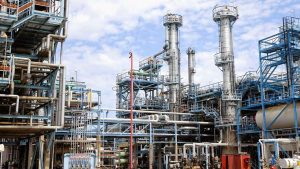
From our research, Solid minerals used to contribute about four to five percent to our GDP up till the 60s because we prioritized our focus on the solid minerals. At a time Nigeria, became top ten producers of tin in the world and the major producer of coal to the world. In fact, we had recorded trade in gold at the time before we discovered oil.
Talking about investment, why are the private investors not really interested in mining these resources or does government legislation prohibit that?. The mining cycle has been noted to be from about 10 years. To do a successful exploration alone takes an average of five to six years of intensive capital expenditure, and when you now do that, to move from exploration to production takes you another three to five years before you start seeing the result. Certainly, the investors will like to put their money where the time line is not far off. What they fail to understand is that the reward for solid minerals is out of this world.
So many of our news sources hope that the inevitable decline of oil in the global space will drive Nigeria’s attention to other alternatives which of cause is Solid Minerals and Agriculture. So while the future of oil is getting threatened by the impending ban on vehicles using fossil fuels in countries such as UK, France, China and the US, it is a big opportunity for Nigeria to start producing batteries from these mineral resources that will power the electric cars. We have all the ingredients to become an electric battery-producing country.
Over the years lots of talking has been going on solid minerals development and no significant progress has been made. Thank God, the roadmap was approved in 2016 by the federal executive council, and that roadmap looks at the governance of the sector, it looks at the strategy for enhancing the mining industry, it looks at policy, it looks at the regulatory framework, and it also looks at the fiscal regime like: what do we charge? And so on. The federal government is focusing on seven key minerals — bitumen, gold, coal, limestone, barites, lead-zinc and tin to be produced in commercial quantity to generate about $27bn by 2025.
Sometime in February 2019 in a one-day sensitization forum on the potential of the solid minerals sector, a notable geology consultant by name Oyewola Oworu noted that the solid minerals industry is capable of generating annual revenue of $60bn for Nigeria if well harnessed. He affirmed that the reason the sector had not fulfilled its potential was because of poor legislation coupled with the lack of funding. “The volume of iron ore we have in this country can generate from $50bn to $60bn revenue if properly managed,” he said.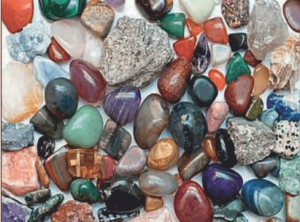
The Nigeria Minerals and Mining Commission will soon be set up to be a regulator, independent of the ministry, in order to boost investors’ confidence. The integrated automated and interactive solid minerals portal (IAISMP) has been launched for a centralized GIS web portal for the automation of mining activities across the country. Cooperatives have been set up for artisans so that they can formalise their activities, have access to credit and sell to a mineral-buying vehicle at the real market value. There is now a special mines police division. Obviously, there is already an aggressive marketing of Nigeria as a mining destination, with more emphasis on the need for processing rather than exporting raw export.
In another development, the President, Miners Association of Nigeria, Alhaji Shehu Sanni, has appealed to other players in different sectors of the economy to show interest in investing in the sector, saying that there must be a collective interest to complement the efforts of the Federal Government to resuscitate the sector. He said that the N30bn intervention fund established by the present administration to salvage the sector was inadequate. “What the sector needs is not N30bn, but sustainable funding for a very long time. For instance a declaration can be made to say five per cent of the national budget should be set aside for the development of the solid mineral sector for the next 20 years and implemented properly. This is the kind of investment that will bring life into the sector.”



